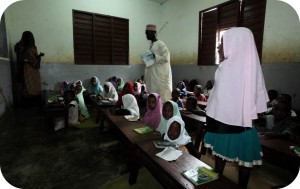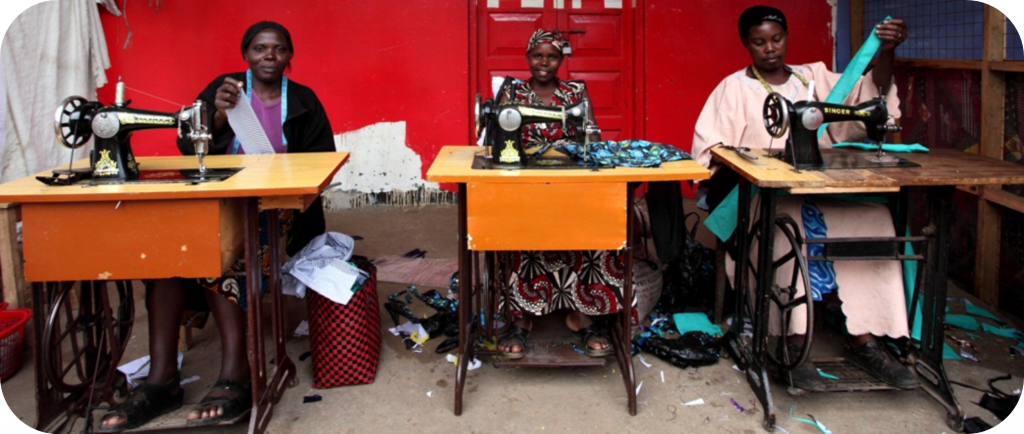1.3 billion people in the world have no access to electricity

Electric lighting from solar-powered rechargeable batteries could allow lessons to be held at night
Currently, for many the only way to see at night time is to use kerosene or gas lamps that use fuel which is expensive and produces smoke and fumes that damage the lungs and present a fire risk. The lights are also dim and strain the eyes. If these could be replaced with electric lighting from solar-powered rechargeable batteries that charge during the day then it would have a huge impact. Adults and children could work or study at night cheaply and safely, improving their ability to learn more or earn more money. Solar street lights can also be used so that people can walk around safely at night or in schools to help children study.
Economic independence
Electricity can also power sewing machines, fridges (for meat or cold drinks), mobile phones and provide lighting in shops and restaurants. Many businesses currently use diesel generators which are expensive to run and constantly break down. Being able to power appliances with reliable electricity generated from the sun, businesses can attract more customers, seamstresses can make clothes faster with electric sewing machines and trading can quicker and easier with a fully charged mobile phone. This gives workers a better ability to make enough money to feed and clothe their large families, send them to school and look after them well.

If these workers could use electric sewing machines, it could significantly increase the number of garments they could produce and sell. They would be able to earn more money, which could improve the quality of life of themselves and their families.
As well as social benefits in developing countries, solar energy will have a huge impact on all of our lives in the Future.


